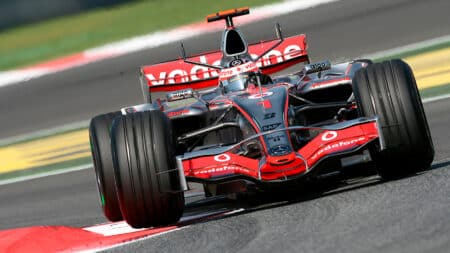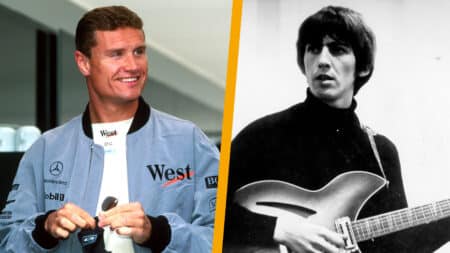
MPH: To the man trying to fill Christian Horner's shoes: good luck!
Laurent Mekies arrives as Red Bull F1 team principal with a series of immediate challenges to solve and long-term issues to tackle. He'll either sink or swim, says Mark Hughes
It’s a fact that many of us left Bahrain in a downbeat frame of mind, for this 2010 Grand Prix season had been anticipated – for a variety of sound reasons – with a great deal of relish. Yet the opening race of the season had been one of the most boring in recent memory, like a re-run of qualifying in slow motion.

Many immediately suggested it had been a mistake to get rid of refuelling and demanded immediate changes, some of which had merit, some not. Bernie Ecclestone counselled against knee-jerk reactions, and anyone with half a brain agreed with him.
Race two, in Melbourne, was as diverting as Bahrain had been bland, and much of this – rightly – was put down to uncertain weather conditions, which have spawned exciting races since the beginning of time. It isn’t much of an intellectual stretch to understand that when you get a wet race track – even a damp one – you have less grip, and when you have less grip you get more driving errors and therefore changes in the order.

Not rocket science, is it? Which makes it the more unbelievable that, between them, the FIA and the Formula 1 teams – all of which have recently wakened up to the fact that racing fans like racing – cannot between them come up with a set of regulations to promote it. Last year, those teams which designed ‘trick’ double-diffusers into the concept of their cars deliberately ignored the aims of the FIA Overtaking Working Group – and the governing body then shamefully declared them permissible.
All concerned knew of the adverse effect this would have on the sport’s appeal, and all – for reasons of self-interest – chose to ignore it. A plague on their houses, as far as I’m concerned – but the FIA Court of Appeal stands especially culpable, for while it is in the DNA of F1 designers to look for loopholes in the rules, it is the interests of the sport which should always be paramount to the people who run it.

Patrick Head once pointed out that the Monaco Grand Prix would be highly diverting if all the cars ran with ‘Hockenheim wing settings’, and on another occasion even more radically suggested that wings be banned altogether – although that, he smilingly admitted, would never be accepted by the team owners given the amount of ‘sponsorship area’ on the car that would be lost.
For the fans, the people to whom manufacturers and sponsors are trying to sell things – and therefore, in the end, the people who pay for this sport – what constitutes the ideal racing car? No one ever defined that better than Tony Brooks, the great Vanwall and Ferrari driver of half a century ago: “A Grand Prix car,” he said, “should always have slightly more power than the chassis can comfortably handle…”

Simple, isn’t it? And the abiding problem of contemporary F1 is that the ratio between power and grip is out of kilter. The ban on traction control was a good move, but still the fact remains that F1 cars race today with 300 horsepower fewer than we have seen in the past – and don’t tell me that the grip levels in the 1980s (during the turbo era) were anything like those of today.
Some years ago Max Mosley decided that horsepower was getting out of control, and declared that the 3-litre V10 engine should be replaced by a 2.4-litre V8. He then imposed the ‘frozen engine spec’ rule, and that was probably essential, given the amounts of money being spent on the endless quest for another 10bhp.

Unfortunately, attempts to change the aerodynamic rules – so as to cut back on grip – have proved far less effective, and thus we have a situation where a dry day means a procession, where only adverse weather conditions can guarantee a memorable afternoon. Can’t be right.
After Bahrain, there was hand-wringing by some of the team principals, who had apparently become suddenly aware that a Grand Prix can be boring, and were demanding all manner of instant changes to spice up ‘The Show’. One instant change might be to be receptive in future to technical changes proposed by the Overtaking Working Group, rather than ignore them for the sake of self-interest.
And to think there was a time when we used to joke about spinklers…

Laurent Mekies arrives as Red Bull F1 team principal with a series of immediate challenges to solve and long-term issues to tackle. He'll either sink or swim, says Mark Hughes

Former McLaren F1 team-mates Mika Häkkinen and David Coulthard are set to renew old rivalries in a new Evening with... tour – they told James Elson all about it

In Formula 1, driver contracts may look iron-clad on paper, but history shows that some of its biggest stars have made dramatic early exits

Former McLaren F1 ace told James Elson about his private audience with The Beatles' George Harrison, who played an unreleased grand prix-themed song